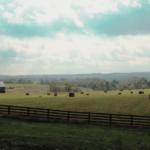Otto Penzler ranks, analyzes, & celebrates the 106 greatest crime films of all-time. Catch up on the series and find new installments daily here.
__________________________________
Laura (1944)
__________________________________
TYPE OF FILM: Detective/Noir
STUDIO: Twentieth Century-Fox
PRODUCER: Otto Preminger
DIRECTOR: Otto Preminger (although begun by Rouben Mamoulian)
SCREENWRITERS: Jay Dratler, Samuel Hoffenstein, and Betty Reinhardt
SOURCE: Laura, novel by Vera Caspary
RUNNING TIME: 85 minutes
PRINCIPAL PLAYERS:
Gene Tierney………………………………………….………………………………..Laura Hunt
Dana Andrews……………………..……………………………………………..Mark McPherson
Clifton Webb………………………………………………………………………Waldo Lydecker
Vincent Price……………………………………………………………….…….Shelby Carpenter
Judith Anderson…………………………………………………………………….Ann Treadwell
Dorothy Adams………………………………………………………………………………Bessie
__________________________________
DID YOU KNOW?
__________________________________
Although Preminger got an Oscar nomination as Best Director, he was merely a replacement for the first director, Rouben Mamoulian, who had been forced on producer Preminger by Darryl Zanuck. Zanuck, the head of Twentieth Century-Fox, hated the arrogant Preminger. The first rushes were dreadful enough to cause Zanuck to fire Mamoulian and replace him with Preminger.
__________________________________
THE STORY
__________________________________

A hard-boiled New York City detective, Mark McPherson, attempts to solve the apparent murder of Laura Hunt, whose face has been blown away by a shotgun blast in her beautiful Upper East Side apartment. The suspects are wealthy snobs who find McPherson as abrasive as he finds them. Occupying center stage is snippy gossip columnist Waldo Lydecker, given to such remarks as, “In my case, self-absorption is completely justified. I have never found any other subject quite so worthy of my attention,” and “It’s lavish, but I call it home.” Laura’s fiancé, Shelby Carpenter, an unctuous Southern playboy comes under suspicion, as does Ann Treadwell, who has set her cap for Carpenter and was fiercely jealous of the beautiful Laura, her niece.
McPherson becomes mildly obsessed with the exquisite portrait of Laura that hangs in her apartment and secretly arranges to purchase it. When Laura returns, alive and well, from a few days in the country, McPherson has to learn the true identity of the corpse while competing for Laura’s affection with Waldo, who is wittier, and Shelby, who is richer.
***
Although generally categorized as a noir film, Laura is more a mixture of romance and detective story in structure. Gene Tierney is heartbreakingly beautiful, but she is not the noir film’s stereotypical bad girl who uses her lover, only to abandon him when he has fallen hopelessly in love. Nor is there the bleak vision of hopelessness so essential an element in the true noir film.
Neither of the two most memorable elements of Laura—the painting and the music—are human. The sentimentalized portrait of Laura is so romantic that McPherson falls in love with the subject even though she is presumed to be dead. When she returns, the real-life Laura is less adored than her image. The haunting theme music by David Raksin made it equally possible for every man in the cinema to fall in love with the image of the ravishing Tierney, and that music remains a staple of late-night piano bars and supper clubs.
Often described as everybody’s favorite mystery movie, Laura had a few slightly odd subtexts. Although all the men in the movie seem to be in love with Laura, Lydecker’s interest appears to be more Pygmalion-like, and the journalist gives a more meaningful look to the handsome McPherson when they first meet than he ever does to Laura. Shelby, too. And for all her beauty, Laura does not project very much heat, except perhaps unintentionally.
Academy Award nominations went to Otto Preminger (Best Director) and Clifton Webb (Best Supporting Actor). Astonishingly, the memorable theme music and still much-loved song, “Laura,” did not get a statue.
The success that Clifton Webb had in this role clearly had an impact on him, as he played a similar feisty and sharp-tongued character for the rest of his career. The tightly controlled Dana Andrews turned to alcohol with greater and greater reliance in later films, and within a decade he was infamous for being continuously drunk on the set of every film he was in. Gene Tierney slipped into paranoia and was suicidal for some years, requiring institutionalization to save her. She ultimately took a job as a clerk in a Topeka dress shop and, happily, married a millionaire.
__________________________________
BEST LINE
__________________________________
Waldo Lydecker, clearly frustrated with Laura, asks tough cop Mark McPherson, “Have you ever been in love, detective?” The laconic McPherson replies, “A dame in Washington once got a fox fur out of me.”


















